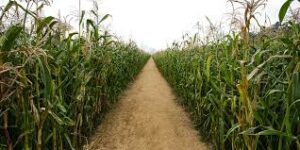
Gary Snyder. Beatster. Hiker. Buddy to Lowell, Massachusett’s wunderkind, Jack Kerouac. It’s Hump Day, a hopeful day, if any among these election year days with wars going on can be called hopeful anymore, so I figured I’d simply share two of his “seems so simple” poems.
Thing is, a lot of poems—even simple ones—read differently over time. It’s like we’re reading them through a difficult year darkly, to twist the Biblical phrase. Simplicity isn’t so simple. Innocence looks like a wolf in sheep’s clothing. The Little Red Riding Reader says, “Is there a catch here?”
The first poem is directed at an audience of children. When Snyder wrote it, I mean. Given the circumstances, the poem’s flowery flourish might as well apply to adults nowadays. But that’s if you think lines have been blurred between the ages and a lot of other things. You be the judge.
For the Children
Gary Snyder
The rising hills, the slopes,
of statistics
lie before us,
the steep climb
of everything, going up,
up, as we all
go down.
In the next century
or the one beyond that,
they say,
are valleys, pastures,
we can meet there in peace
if we make it.
To climb these coming crests
one word to you, to
you and your children:
stay together
learn the flowers
go light
And here’s a bonus Snyder. Outdoorsy like many of us these days. I should know. I’ve been outside every day, walking miles, mapping my sanity.
I’ve seen a lot of others out there hoofing it, too. Walking roads and trails. Walking beaches. And walking dogs. I haven’t seen this many dogs on leashes since the last Westminster Kennel Club Dog Show.
Who says the dog days are only in August? Like everything else, the dark news of too much computer or television time has redrawn the maps. And calendars. And history books.
Map
Gary Snyder
A hill, a farm,
A forest, and a valley.
Half a hill plowed, half woods.
A forest valley and a valley field.
Sun passes over;
Two solstices a year
Cow in the pasture
Sometimes deer
A farmhouse built of wood.
A forest built on bones.
The high field, hawks
The low field, crows
Wren in the brambles
Frogs in the creek
Hot in summer
Cold in snow
The woods fade and pass.
The farm goes on.
The farm quits and fails
The woods creep down
Stocks fall you can’t sell corn
Big frost and tree-mice starve
Who wins who cares?
The woods have time.
The farmer has heirs.
OK that’s it for today. I’m going out to check the corn. And avoid the news.
